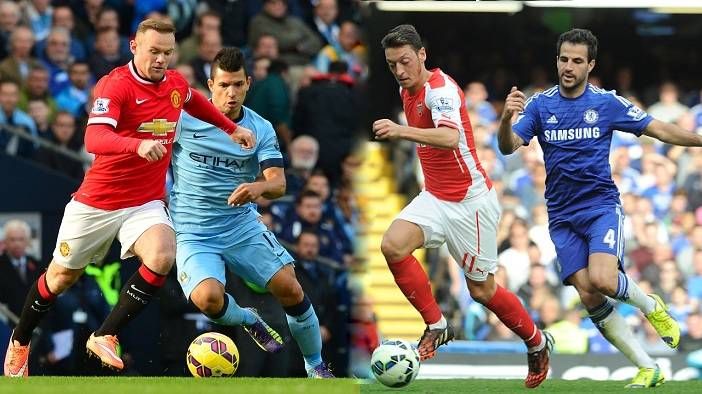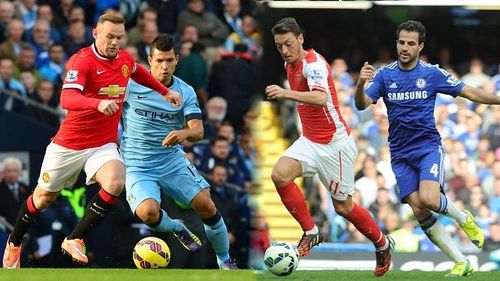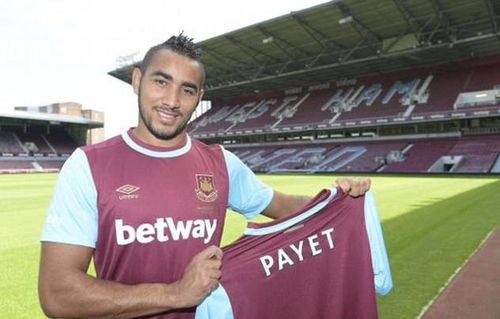
How the new TV deal is making the Premier League more competitive

Most fans you see or interact with on social media will regard the Premier League as the best league in the world. It’s definitely entertaining, collectively has more star players than any other league and is an unpredictable league where virtually any team can beat the other.
Whether it’s the best league tactically, is another question but when the Premier League announced its new broadcasting deal in February worth £5.14 billion starting 2016, it reaffirmed itself as the biggest and most popular league in world football. After all, the three-year deal with Sky Sports and BT Sports is already a 71% increase from the current deal, putting England’s top league miles ahead of its European counterparts.
Gap in television money
To put this into context, the Premier League will earn more television money than La Liga, Serie A and the Bundesliga combined (£1.7 billion). This means that the current 20 Premier League clubs – already ranked among the 40 richest in world football – will have even bigger bank balances which will only make it harder for teams in other leagues to attract the same level of players.
And this is only a three-year deal which expires in 2019. Combined with foreign broadcasting deals with the rise of the league in continents like Asia and North America, one can expect the money to only skyrocket given the marketability of the Premier League, especially when you consider the new deal could be worth around £9-10 billion if foreign deals are included.
Of course, there are small exceptions like PSG and Bayern Munich while in La Liga, the big two in Real Madrid and Barcelona rake in majority of the £560 million, but other top clubs could soon be losing or missing out on top players to clubs in the Premier League.
In fact, it’s already happening as one just needs to look at the transfers that have happened so far.
A new recurring trend?

Dmitri Payet recently signed for 12th-placed West Ham from 4th place Ligue 1 side, Marseille in a deal worth over £10 million. The Frenchman who created the most chances in the top five European leagues this past season will earn a reported salary of £67,000 per week – only Andy Carroll will be earning more than Payet.
Another player – ironically from Marseille – to sign for a Premier League club this summer has been Andre Ayew. One of Ghana’s standout players with World Cup and Champions League experience, Ayew’s contract was running out and he was linked with a number of clubs such as Roma, Bayer Leverkusen, Inter Milan and more.
In the end, he decided to sign for Swansea City who paid a huge £5.7m sign on fee while offering £50,000 per week in wages, which as it stands, makes him Swansea’s highest paid player in history.
PSG’s Yohan Cabaye has also been linked with a return to the Premier League with clubs like Southampton, Crystal Palace and West Ham all linked with the former Newcastle midfielder. It would certainly be some statement if Palace – who were just promoted two seasons ago – could land a player like Cabaye. Such is the power of the new television deal that manager Alan Pardew can be confident of challenging other Premier League clubs for these kinds of players.
“While we cannot compete with some of those clubs in terms of budgets, we can look to attract the kind of players they are also in the market for. If we could add that kind of quality of player to this current group, then we have a chance to push on.” – Alan Pardew.
It’s no wonder that Noel Le Graet, president of the French Football Federation is frustrated with the Premier League’s poaching of Ligue 1 stars.
"There is already an attraction to English football because of the money. Now a zero is added to the wages of our young players when they cross the channel and that's not about to change.
There's nothing we can do for the next three or four years. The French model must be stronger economically. We need more leaders on the marketing and business side of the game in France, which has been neglected."
It’s not only Ligue 1 suffering either. Bundesliga side Mainz lost their top striker, Shinji Okazaki to Leicester City in a deal worth £7.5 million while Schalke’s Christian Fuchs also moved to the Foxes on a free transfer. Hannover’s Joselu moved to Stoke City for a fee of £5.9m while Hoffenheim’s Roberto Firmino is set to complete a move to Liverpool for an initial fee of £22 million.
As one can see, this is becoming a recurring trend lately and it’ll only go into overdrive once the television deal actually kicks in at the start of the 2016-2017 season. It’ll only be a matter of time until La Liga is set to be raided next.
The proposed new La Liga TV deal is scheduled to kick in from the 2016/17 season, and it is still not very clear how the revenue would be distributed, but looks like it might still favour the big two.
While it’s damaging other leagues, it’s only making the Premier League more and more competitive with many midtable sides strengthening considerably. As it is, we’ve already seen the incredible spending power of the top four in recent years and we could be set to see even more star players relocating to England.
While some are against the notion that the Premier League is the best in the world, it’ll certainly be hard to argue against the quality of players there now, especially if the recent influx of talent continues.